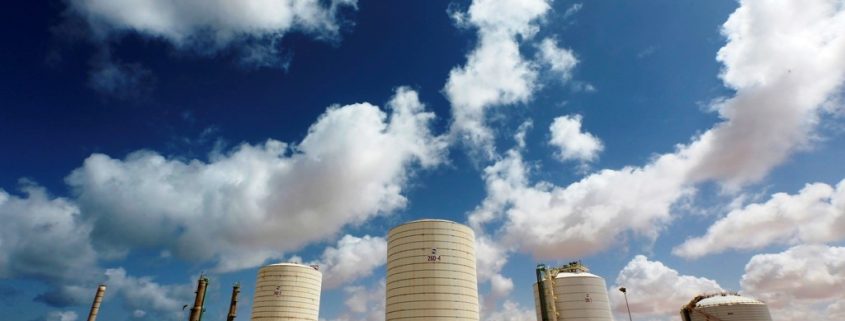Wintershall question retains Libyan oil output, as it tops 800,000 bpd
Oil production in Libya
For the very first time since 2014, Oil production in Libya came to 800,000 bpd. Which makes it the highest level in 3 years. The info is from National Oil Corporation report which came out on Wednesday. The hack question of Wintershall, the German Oil film was stating that Libyan oil production closed at additional 160,000 bpd. The real Libyan output can reach the level amongst 1.1 million and 1.2 million bpd. Only in condition that officials are going to remove political obstructions. 
“Libya could produce between 1.1m to 1.2 million bpd. Regarding the period till the end of the year. This will happen only if Oil flows loosely & free. We require Serious National efforts.” (Mustafa Sanalla) He gave a comment on this subject for FT. Mr Sanalla is the chairman of Libya NOC.
Despite the output seriously recovering in forthcoming months, it still is at less than 1.6m barrels per day. These levels were normal in 2011, when M. Gaddafi crashed the uprising trends. Armed conflicts and political chaos destroyed the output trends which were smoothly but steadily rising in 2011.
OPEC
OPEC countries are planning a meeting on May 25th. That is a day when they will decide on whether to prolong output cuts. Knowing this, officials are watching Libyan outputs closely. While most producing countries have brought up the output cuts, Libya is released of these agreements. The inconsistency with Wintershall on the operator’s production will be put on Libyan state. (NOC) Also, the resulting debts have to go back to the levels from 2010. At least. These agreements have shut more than 160,000 b/d.
The NOC plans
The NOC plans to switch the concession agreement it has with Wintershall. About a production-sharing contracts, aiming to reduce the German company’s production share for more than a half. It considers that Libya, being under pressure from an oil price collapse, already is missing out on revenues of huge value that provide the spine of it’s economy.
UN Presidency Council government in Tripoli negotiated about the agreements on further (un)blocks in oil production. Which gave them a power to discuss on country’s agreements and deals with foreign companies.
Wintershall attitude
Crude Oil Exports form Zueitina Terminal were not loaded, so the state forced Company to shutdown the production.
Zueitina Terminal location is in the Central Northern part of Libya on the Mediterranean Sea cost. It consists of offshore loading berths for oil tankers and LPG carriers. The main cargoes handled are crude oil, naphtha, butane and propane.

“It would not be an economic exploitation of the petroleum resources . . . to continue production without generating revenues but still being obliged to carry all production-related operational expenses.” (Financial Times)
Finishing, The Wintershall did not assign an export distribution since March, due to the previous disputes. (NOC)
“There is no claim over money allegedly owed by Wintershall. Wintershall has always met its obligations towards the Libyan state.”
“Our concession agreements with the state of Libya are still valid and in full force. We are in contact with NOC about a number of issues.”
In conclusion, Libyan Oil outputs have been affected mostly by country’s policies and agitated past which definitely has a deep consequences. As well as on Oil outputs, it affects every aspect of Libyan economy. It needs time to recover, and collaboration with foreign companies will help.




Leave a Reply
Want to join the discussion?Feel free to contribute!